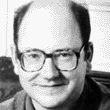 Speaking recently at the Hay Festival in the UK, biographer Richard Holmes attacked the “dangerous” division between the arts and the sciences, warning that the split could be fatal in the face of global warming. Fifty years ago the British novelist and scientist C P Snow gave a famous lecture, The Two Cultures, which pointed to a breakdown of communication between the sciences and the humanities. I was a young man at the time and can remember thinking it characterised my position adequately enough. I was reasonably well informed in literature, history and theology but had very sparse knowledge when it came to the sciences. I’ve tried over the years since to get better acquainted with the major themes of science, but it’s pretty well in the nature of things that there’s no easy path from the humanities to the sciences. Traffic the other way flows much more readily and many scientists are very much at home in both worlds.
Speaking recently at the Hay Festival in the UK, biographer Richard Holmes attacked the “dangerous” division between the arts and the sciences, warning that the split could be fatal in the face of global warming. Fifty years ago the British novelist and scientist C P Snow gave a famous lecture, The Two Cultures, which pointed to a breakdown of communication between the sciences and the humanities. I was a young man at the time and can remember thinking it characterised my position adequately enough. I was reasonably well informed in literature, history and theology but had very sparse knowledge when it came to the sciences. I’ve tried over the years since to get better acquainted with the major themes of science, but it’s pretty well in the nature of things that there’s no easy path from the humanities to the sciences. Traffic the other way flows much more readily and many scientists are very much at home in both worlds.
“A good many times I have been present at gatherings of people who, by the standards of the traditional culture, are thought highly educated and who have with considerable gusto been expressing their incredulity at the illiteracy of scientists. Once or twice I have been provoked and have asked the company how many of them could describe the Second Law of Thermodynamics, the law of entropy. The response was cold: it was also negative. Yet I was asking something which is about the scientific equivalent of: ‘Have you read a work of Shakespeare’s?’ C.P. Snow
Richard Holmes urges us not to accept the notion of two cultures. We all have a duty to try to understand the scientific discoveries of the modern age. Incomprehension is not acceptable. He has followed his own advice. Last year he had a book published on 18th century scientists The Age of Wonder. Like many literary people he had always accepted that he knew nothing about science and initially wondered whether he would be able to explain it in his book. But he discovered many of the scientists wrote beautifully and, while it helped that there wasn’t too much maths involved, he was able to get a grasp of the subject — very successfully, to judge by the reviews.
Today the whole question has taken on a new urgency. He said in his address at Hay:
“The elephant in the room is what is happening to the planet, and it’s scientific people who can tell us why the ice caps are melting. It’s for all of us as citizens to understand science so proper decisions can be made. We need a complete understanding.”
Novelist Ian McEwan can be cited as a good example of writer who has always maintained a strong interest in science. It is reflected in the powerful article he wrote for the Guardian in November hailing Barack Obama as the only one likely to be able to unite humanity in the life-or-death struggle against climate change (covered at Hot Topic here). The article took extra strength from the understanding of climate science he drew on.
Holmes describes it as a two-way process. Science needs to be able to describe itself to us, and we need to understand and listen and read. Science is explaining itself to us, as I for one have readily been able to discover. One may always hope for more, but there is plenty already published and accessible, as many of the book reviews on Hot Topic attest. It seems to me that it’s the requirement of the rest of us to understand and listen and read that is not yet being adequately met. That really is a duty at least for those who aspire to political leadership, for the news media, and for anyone who takes their citizenship of the planet seriously.

2 thoughts on “The twain must meet”